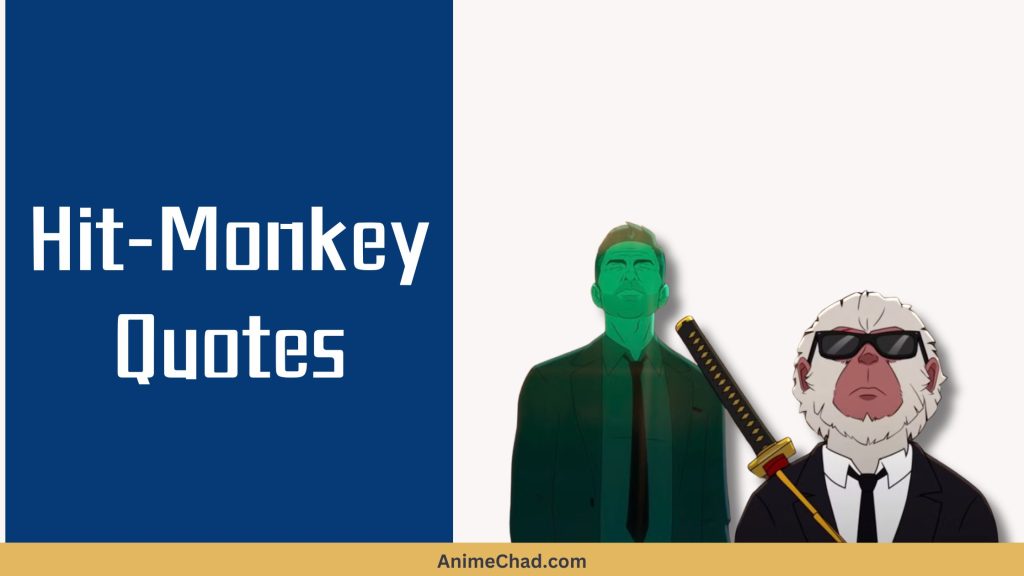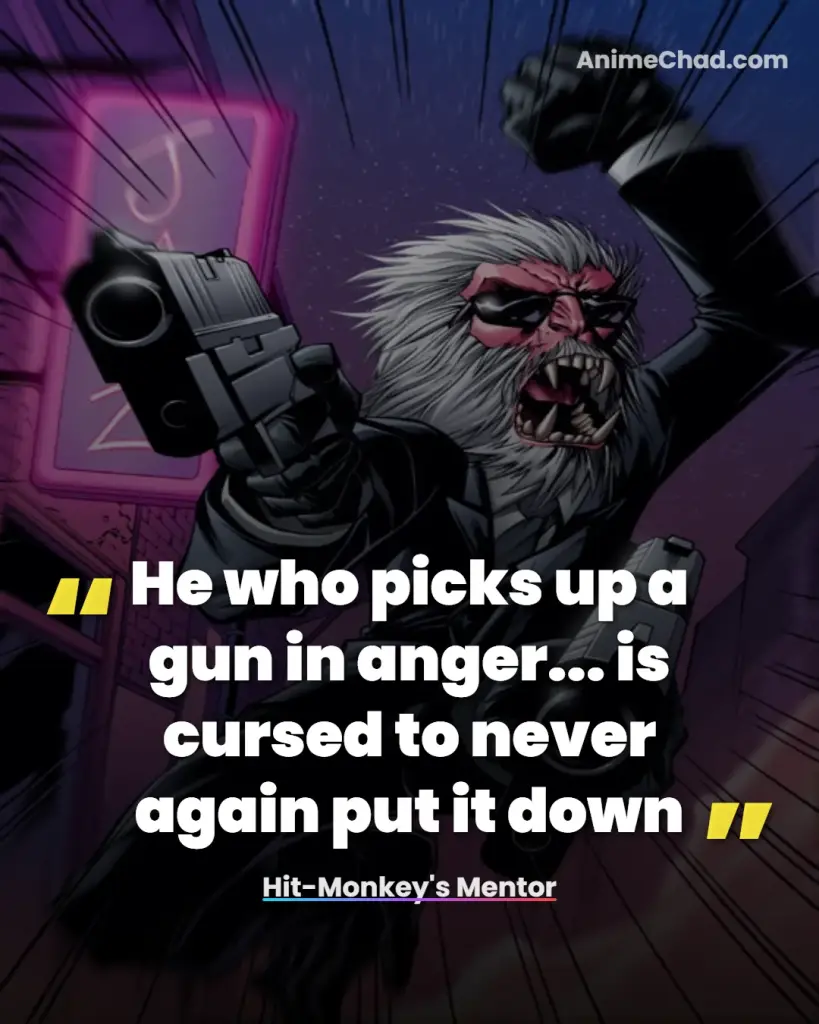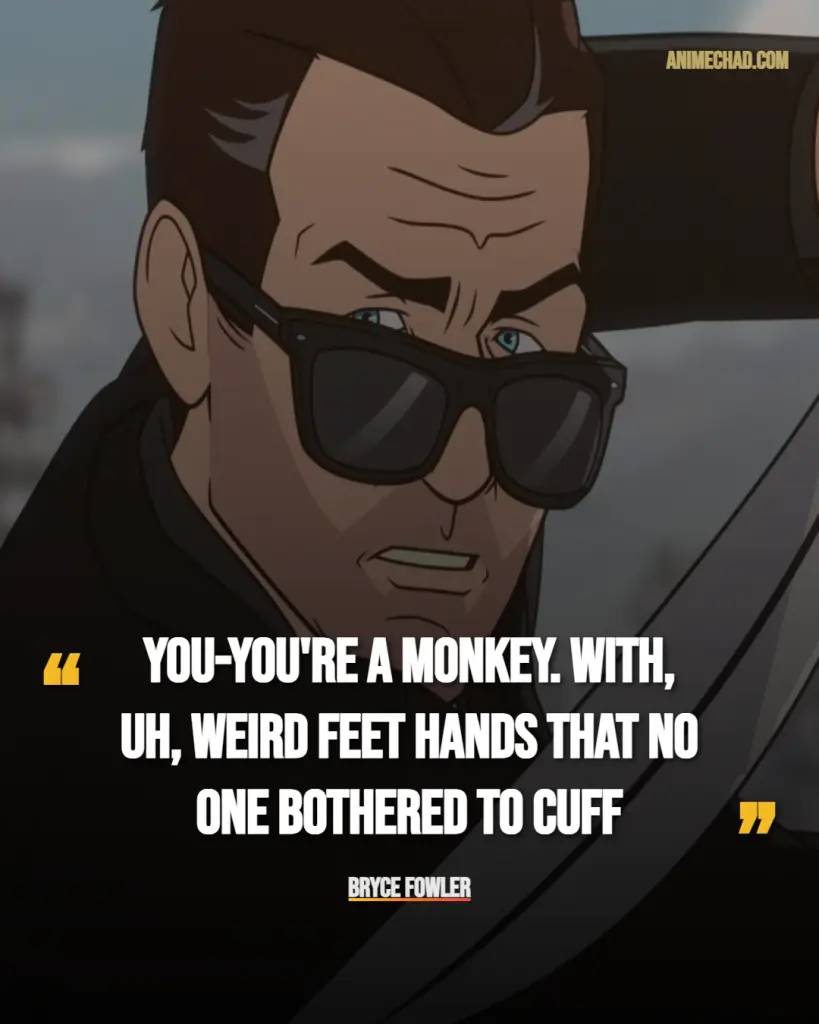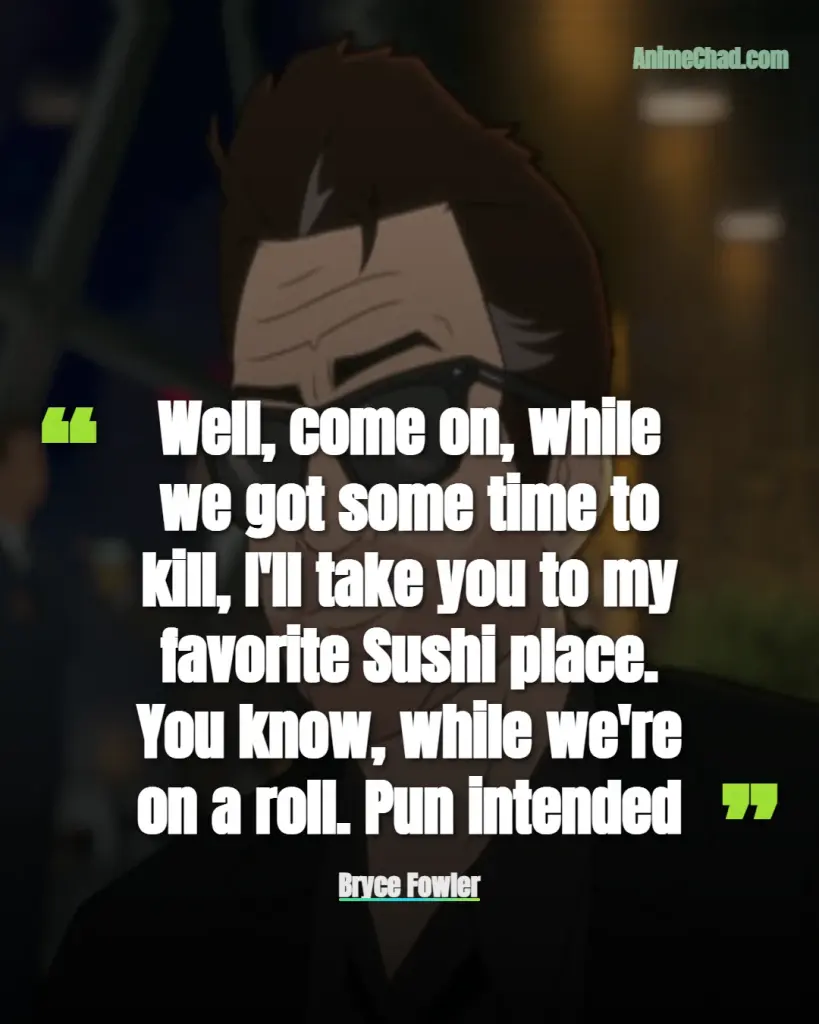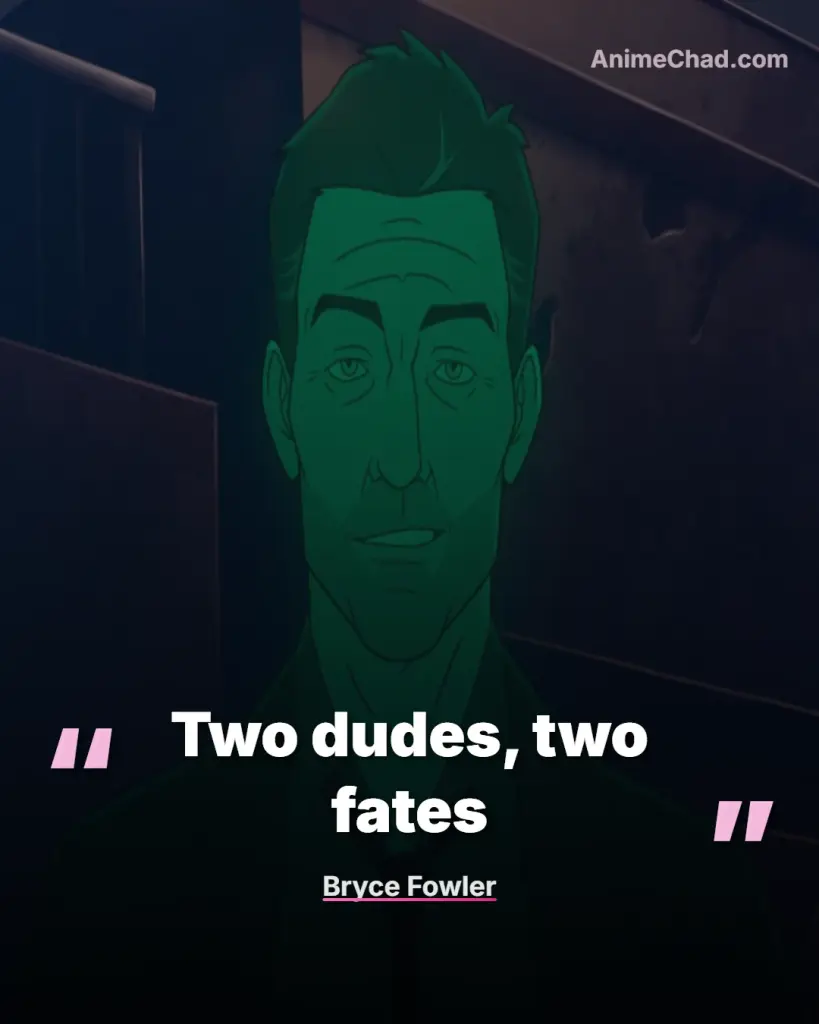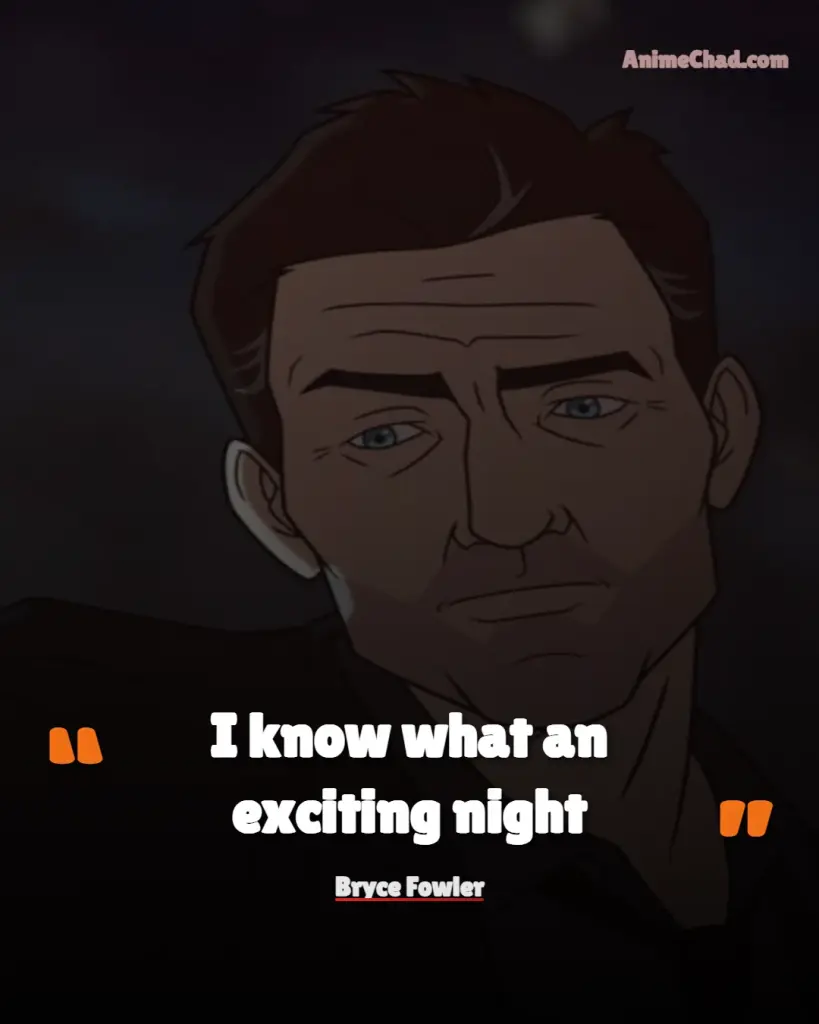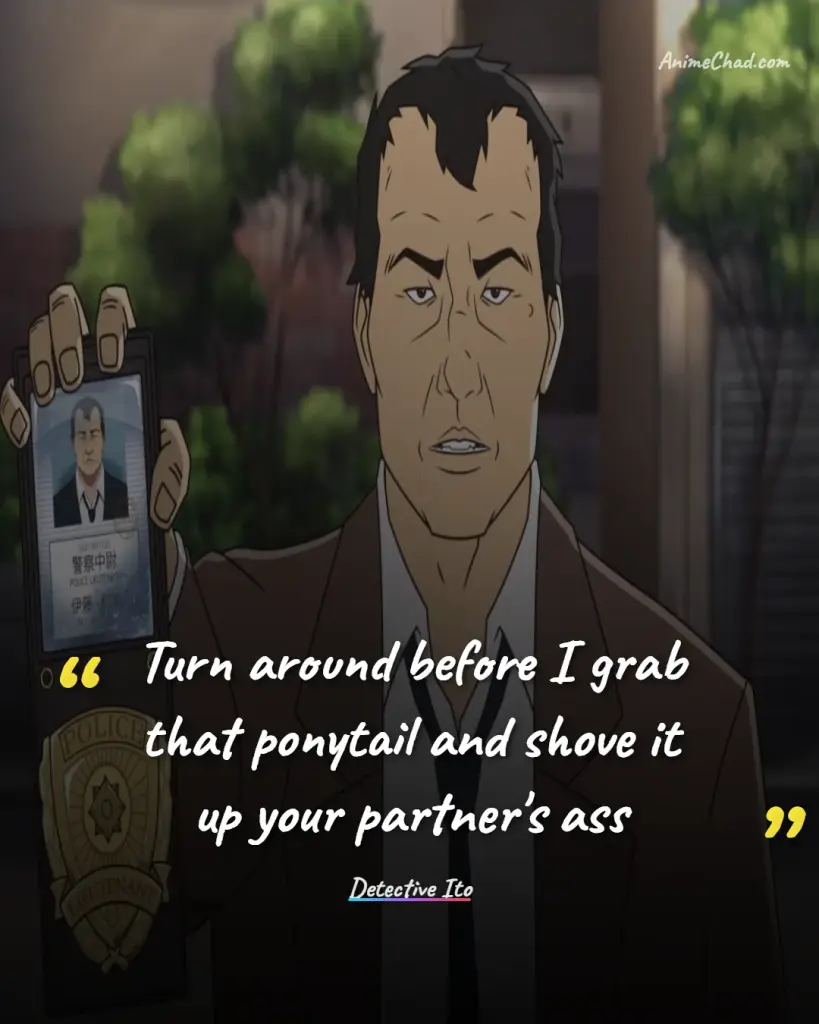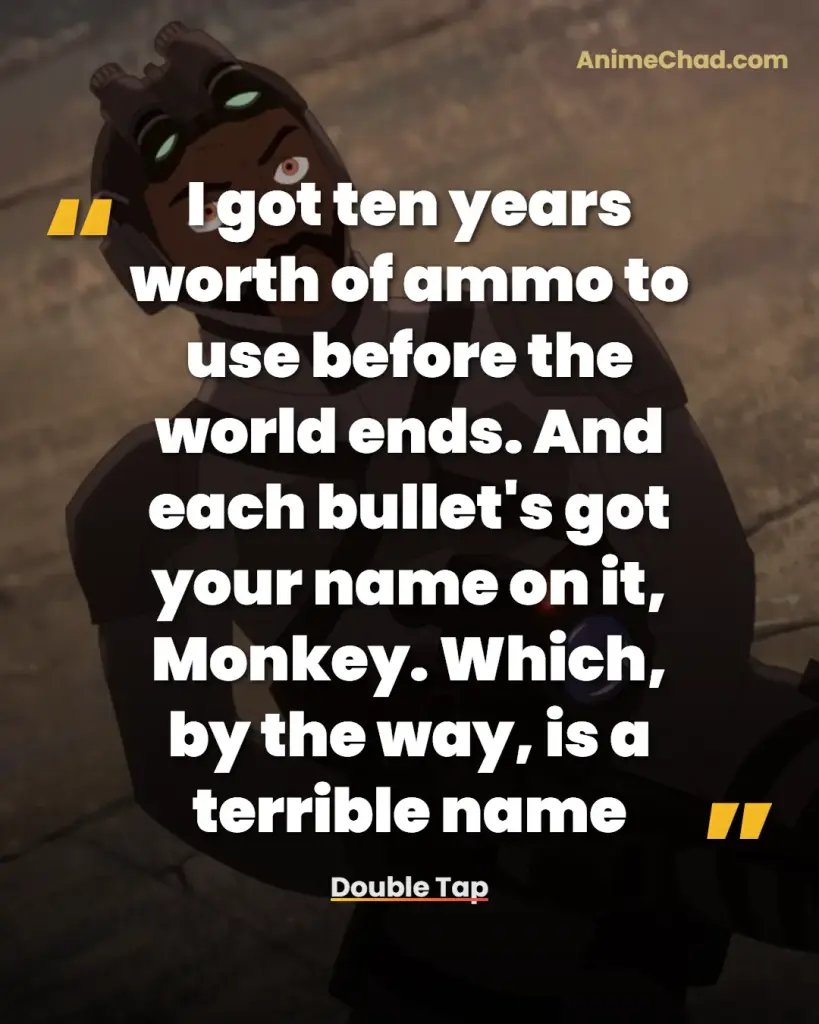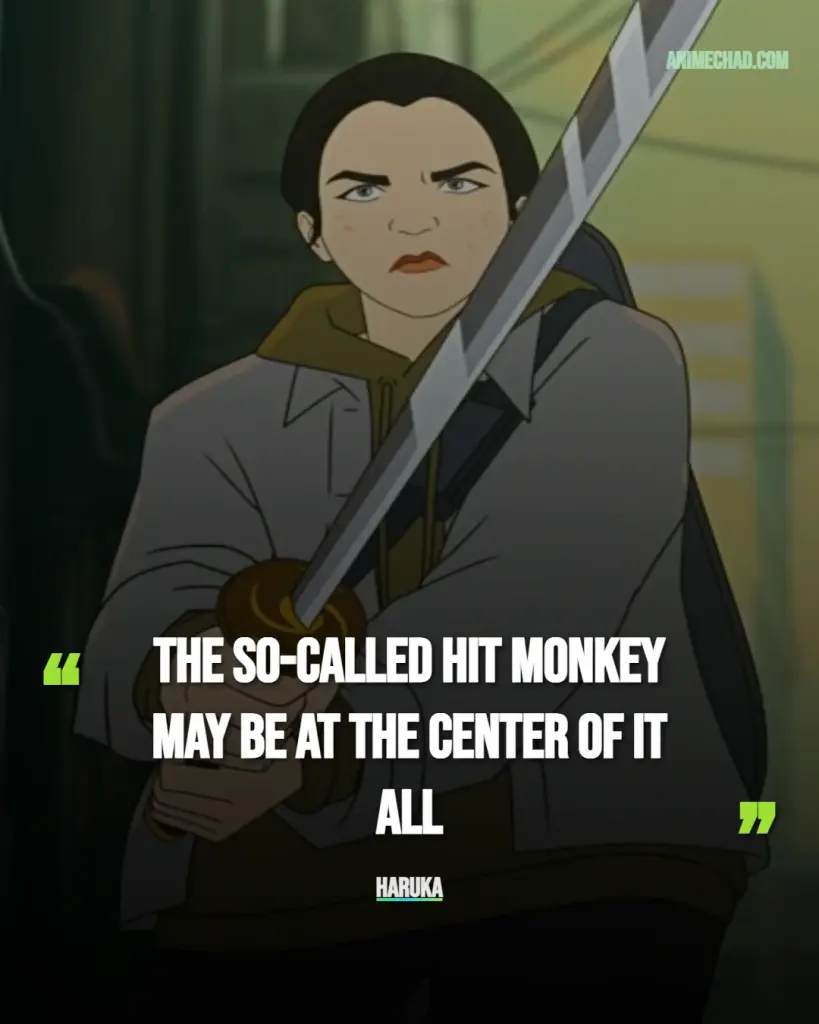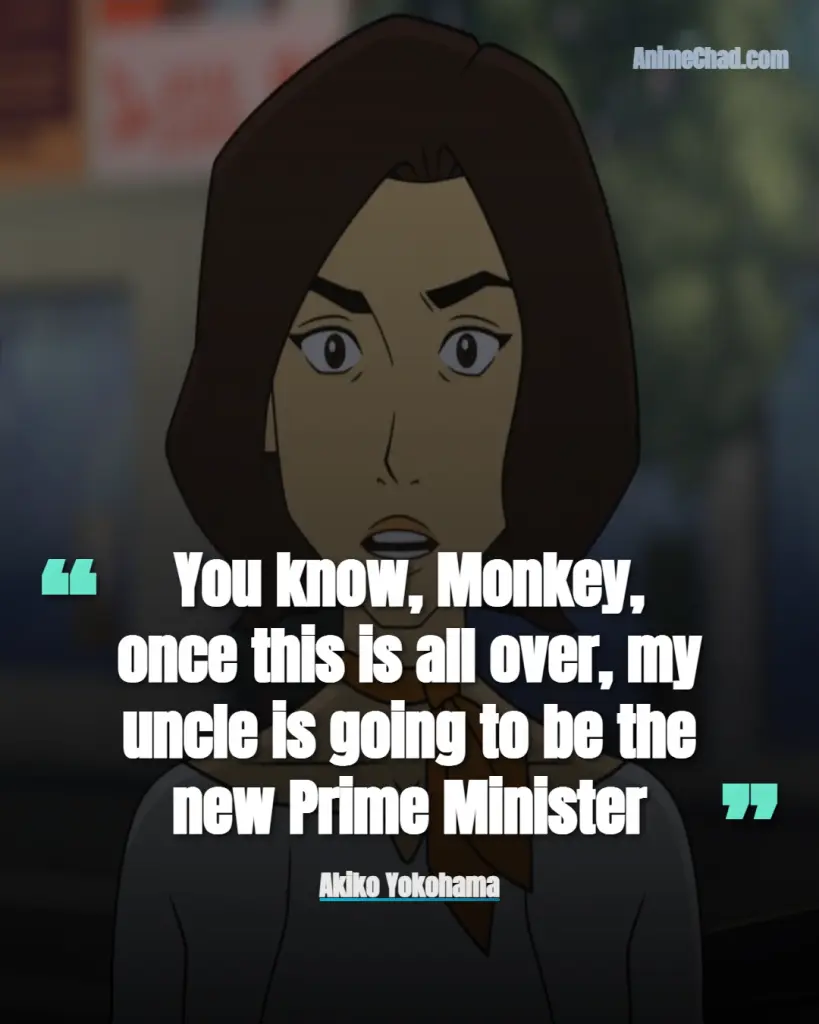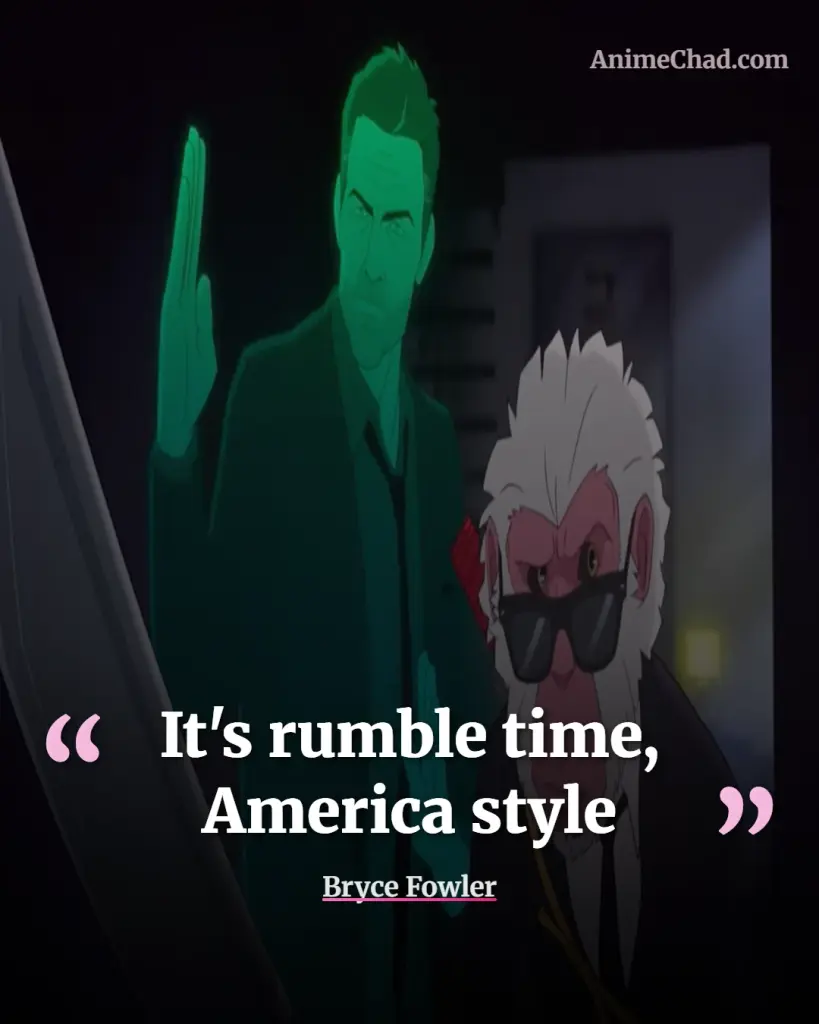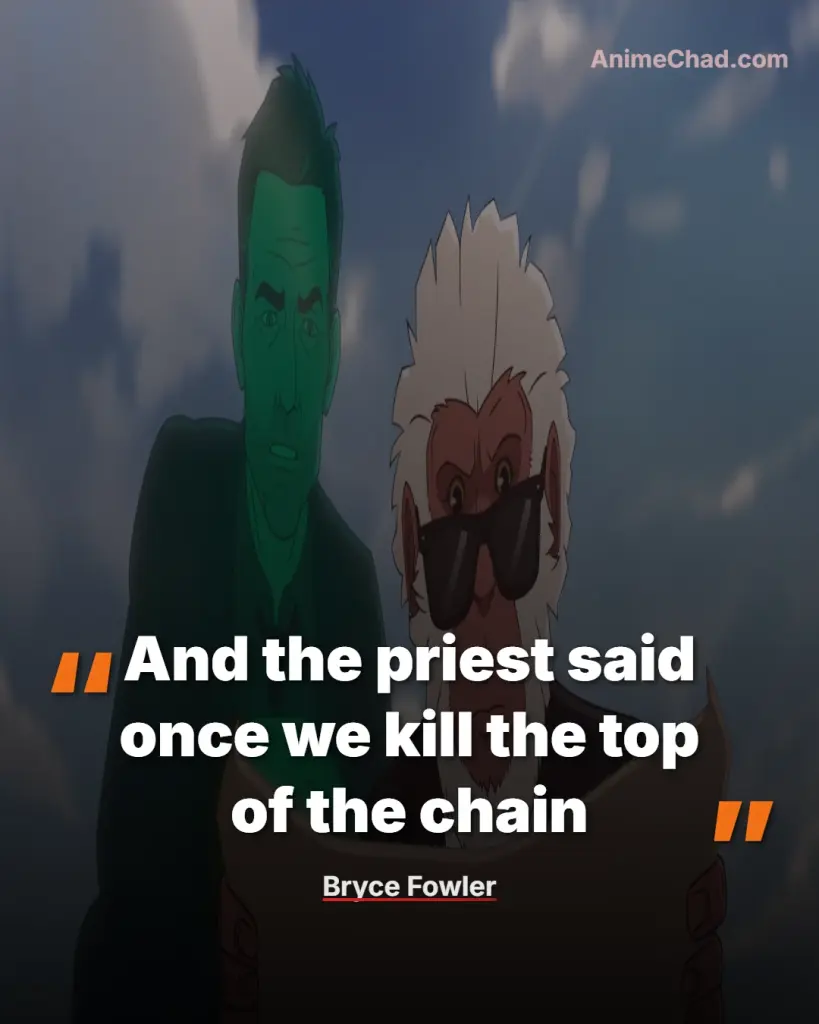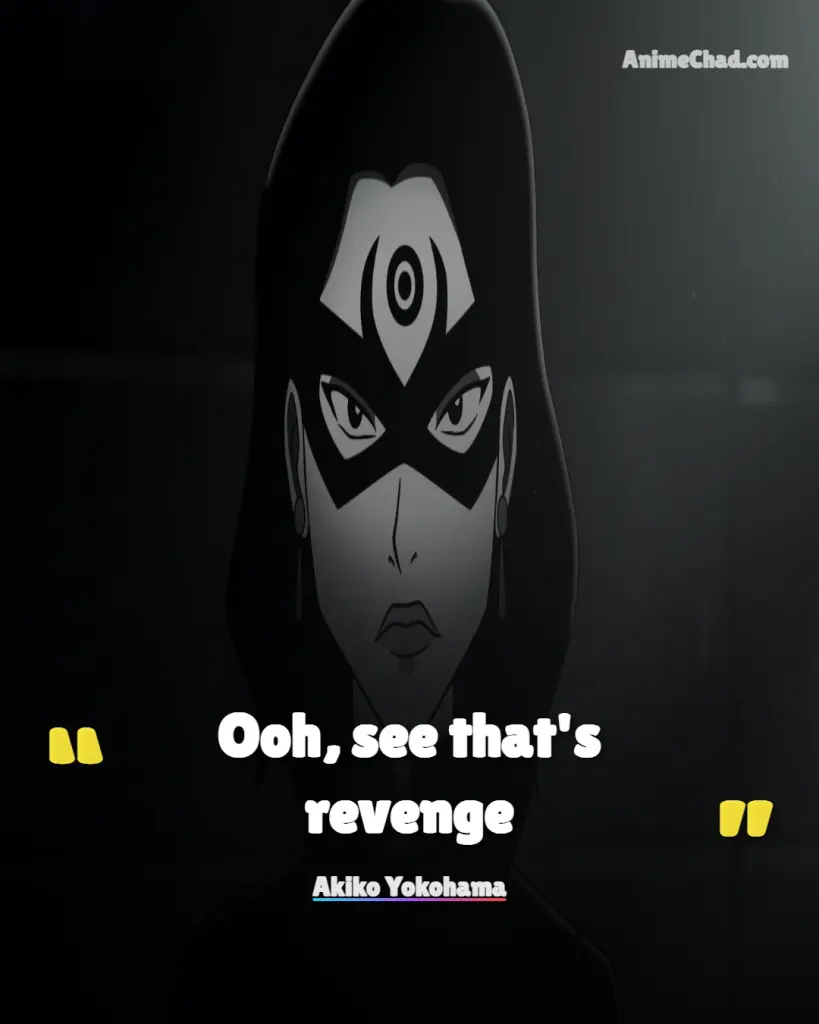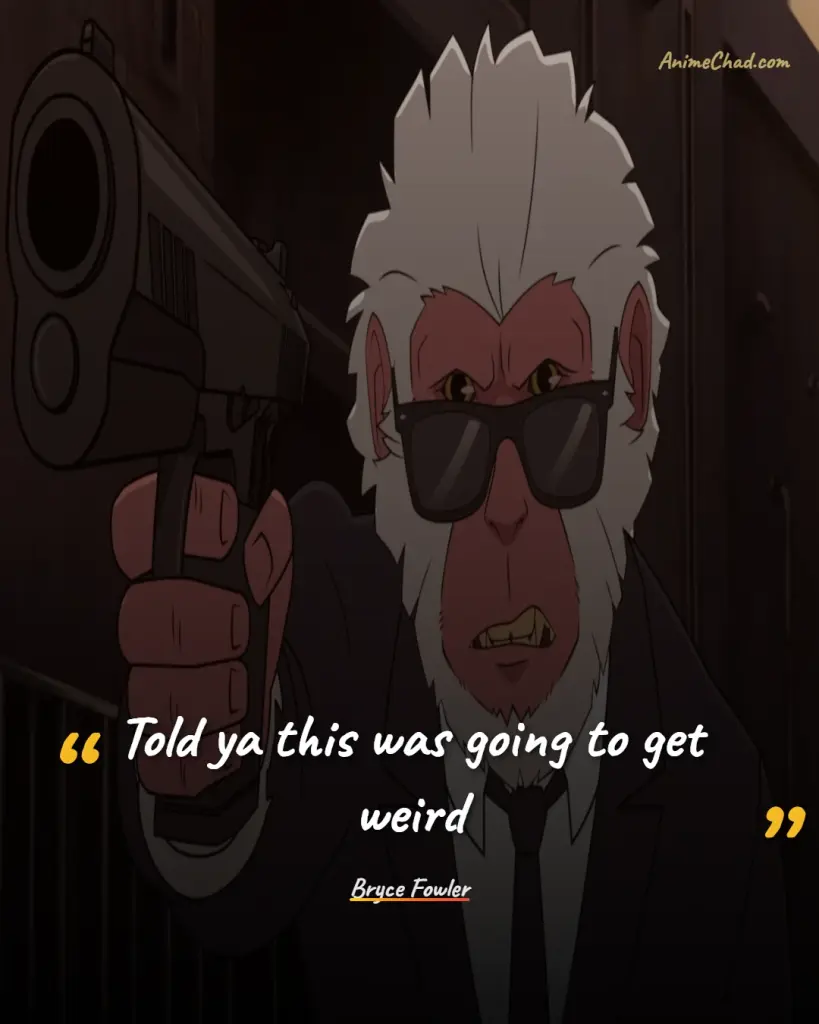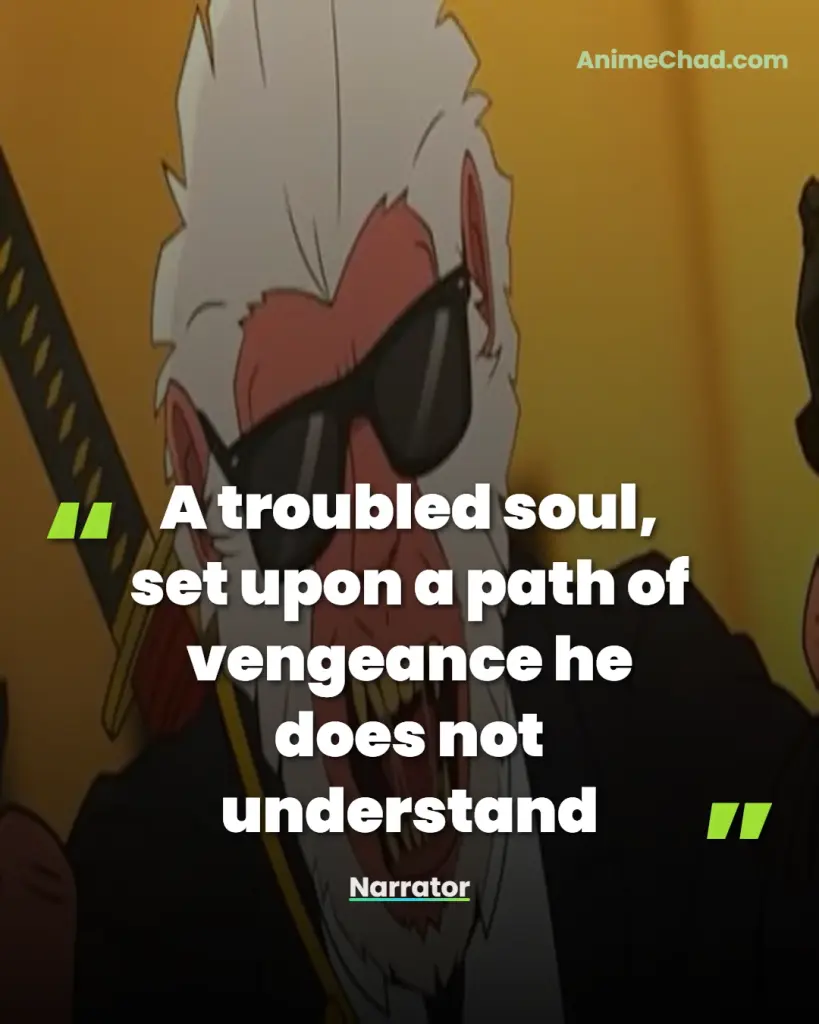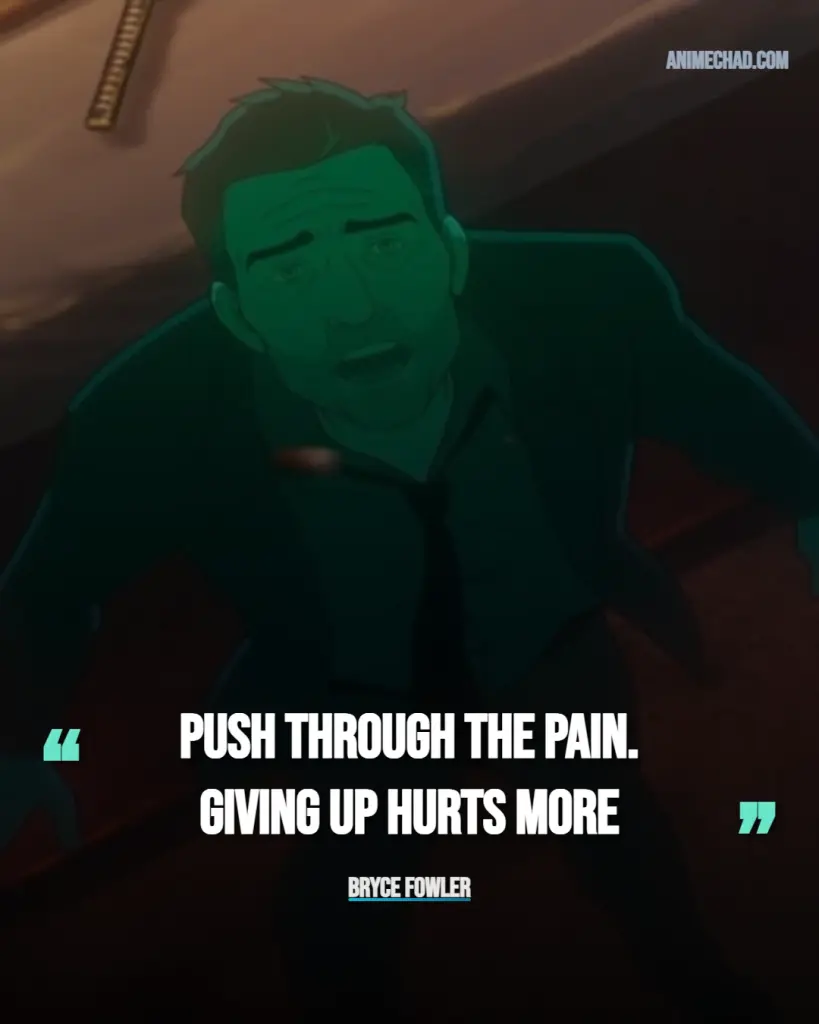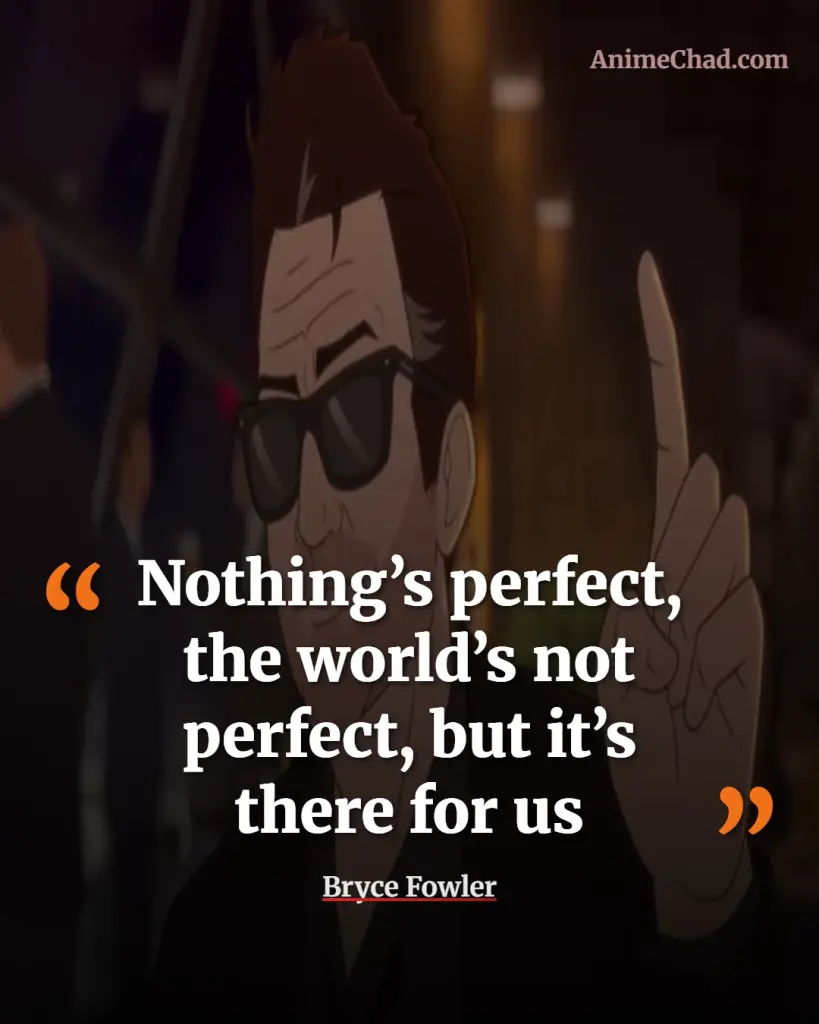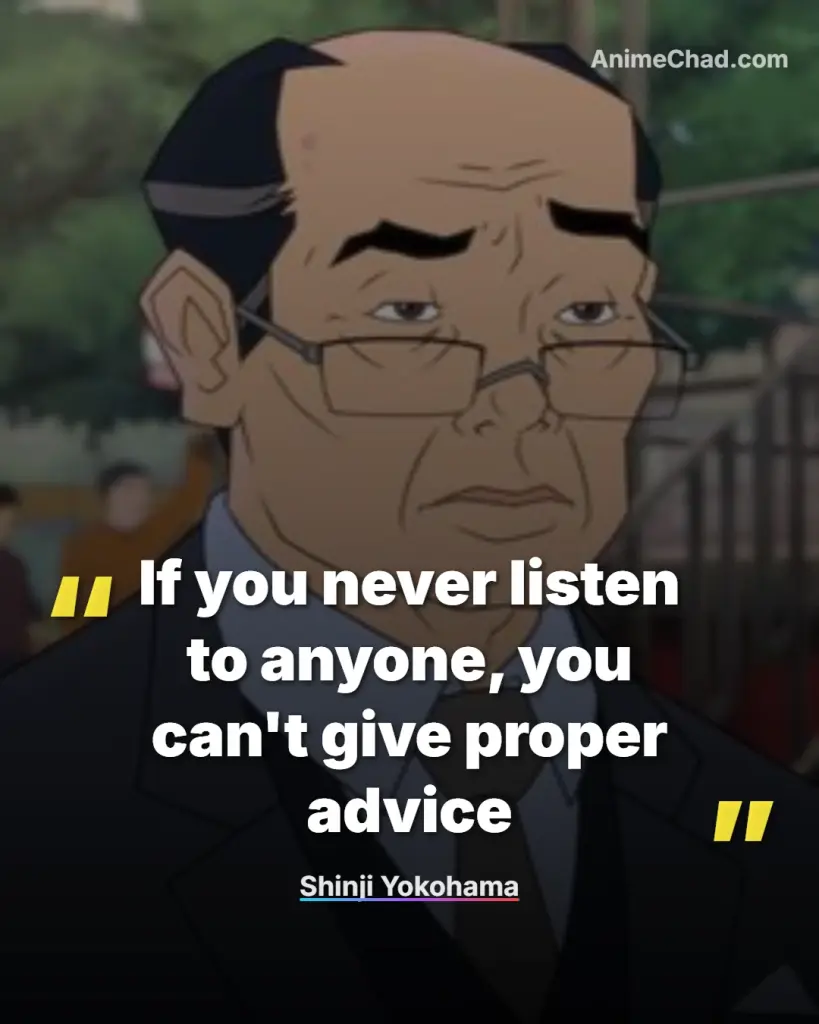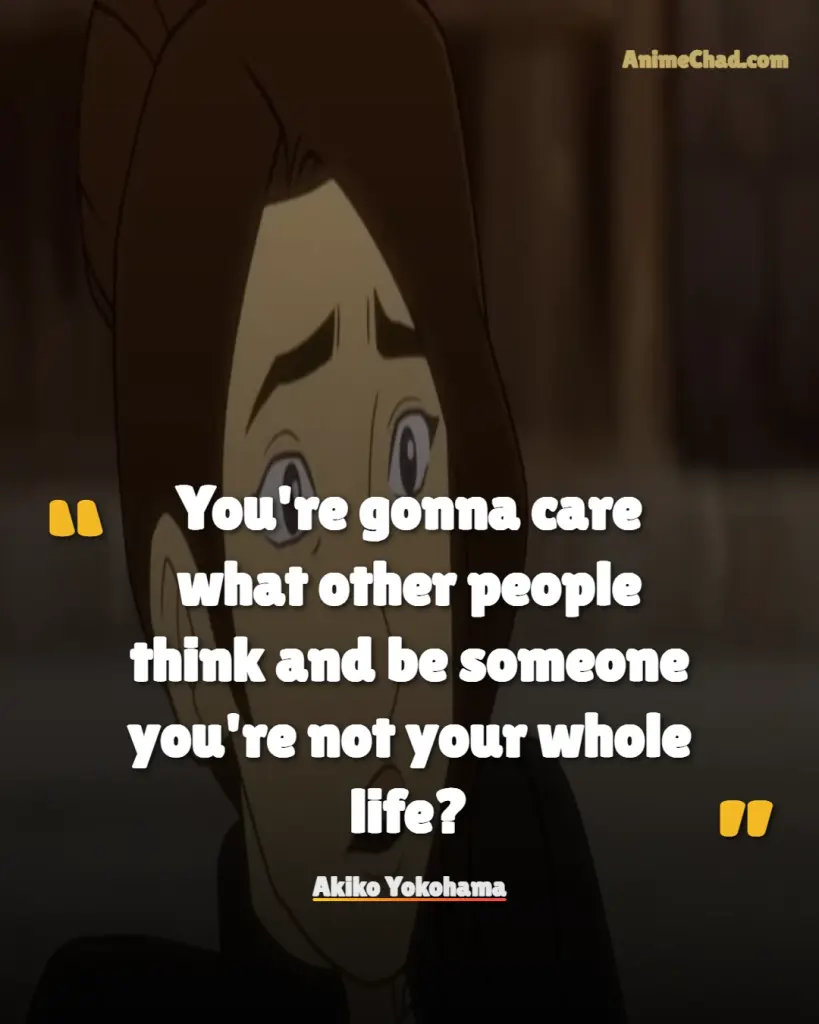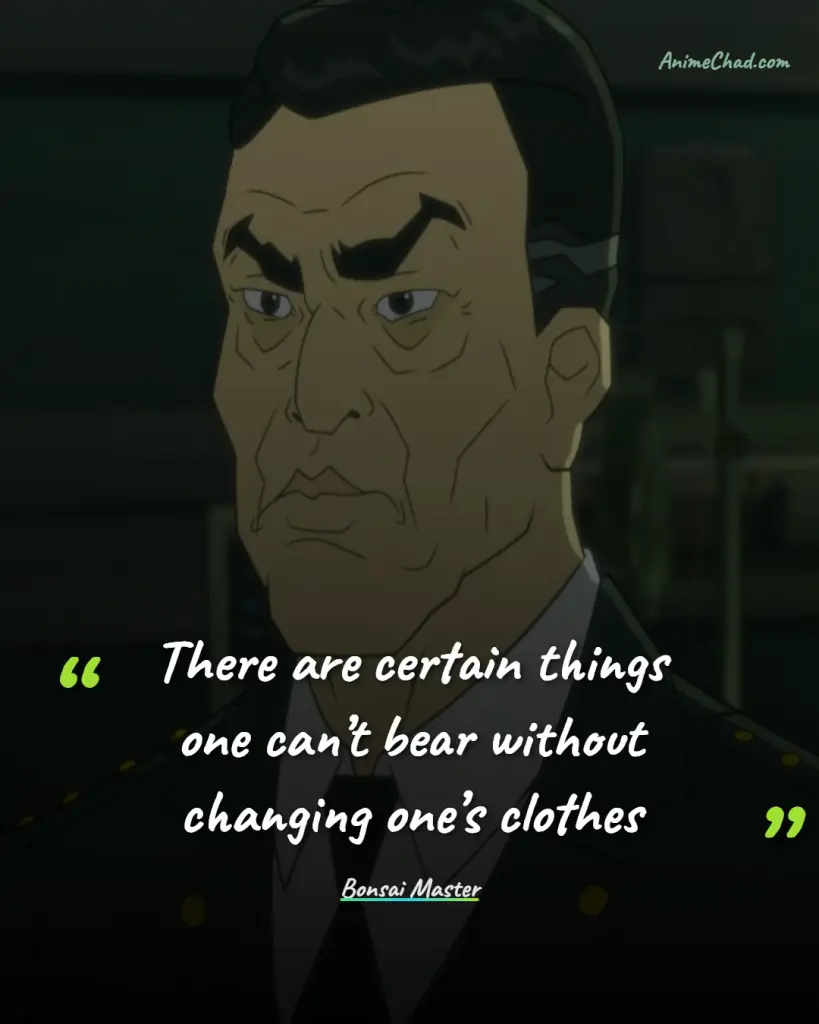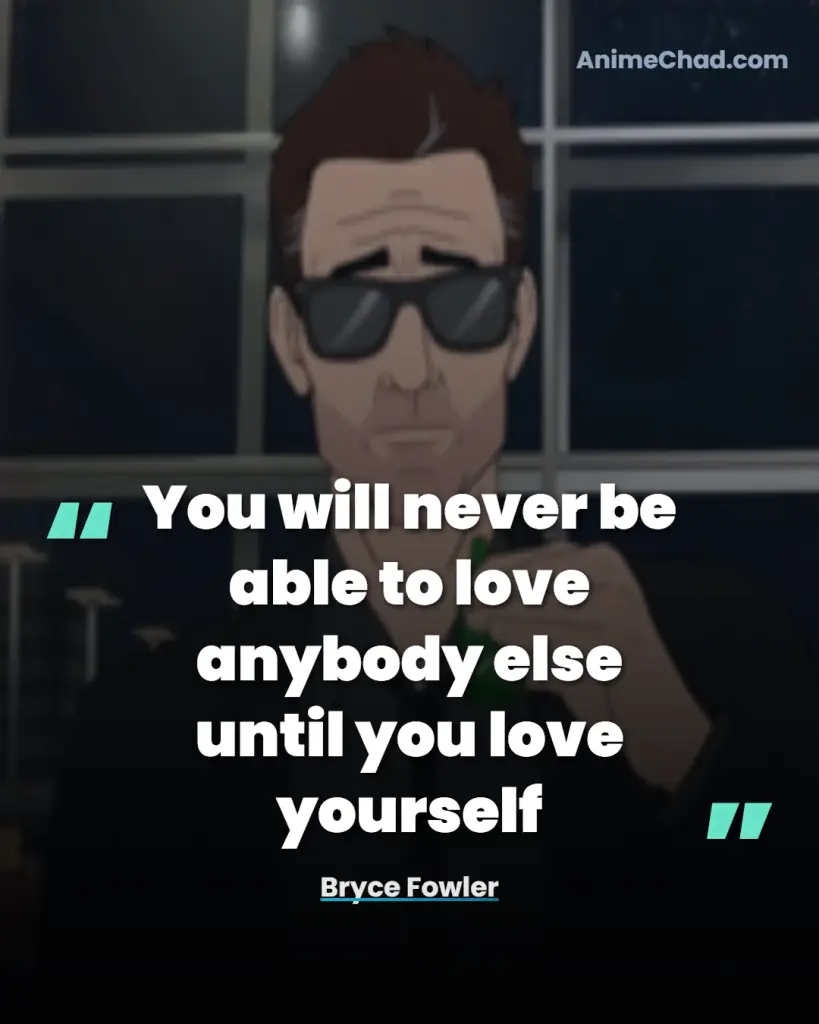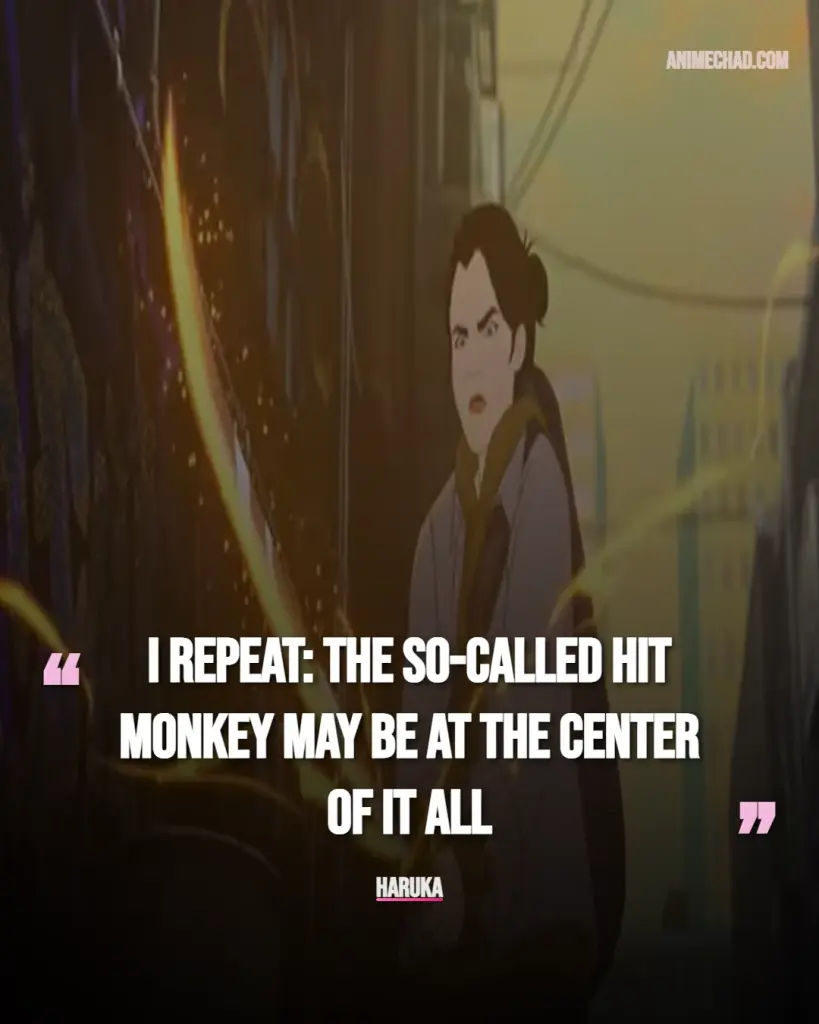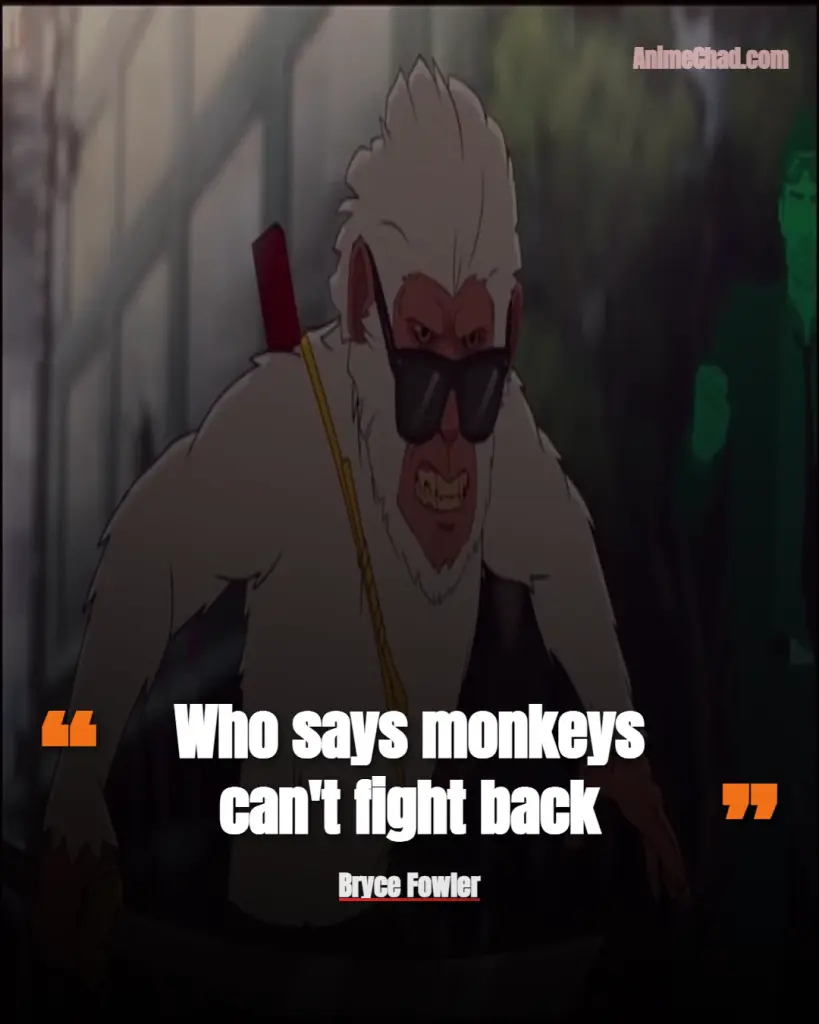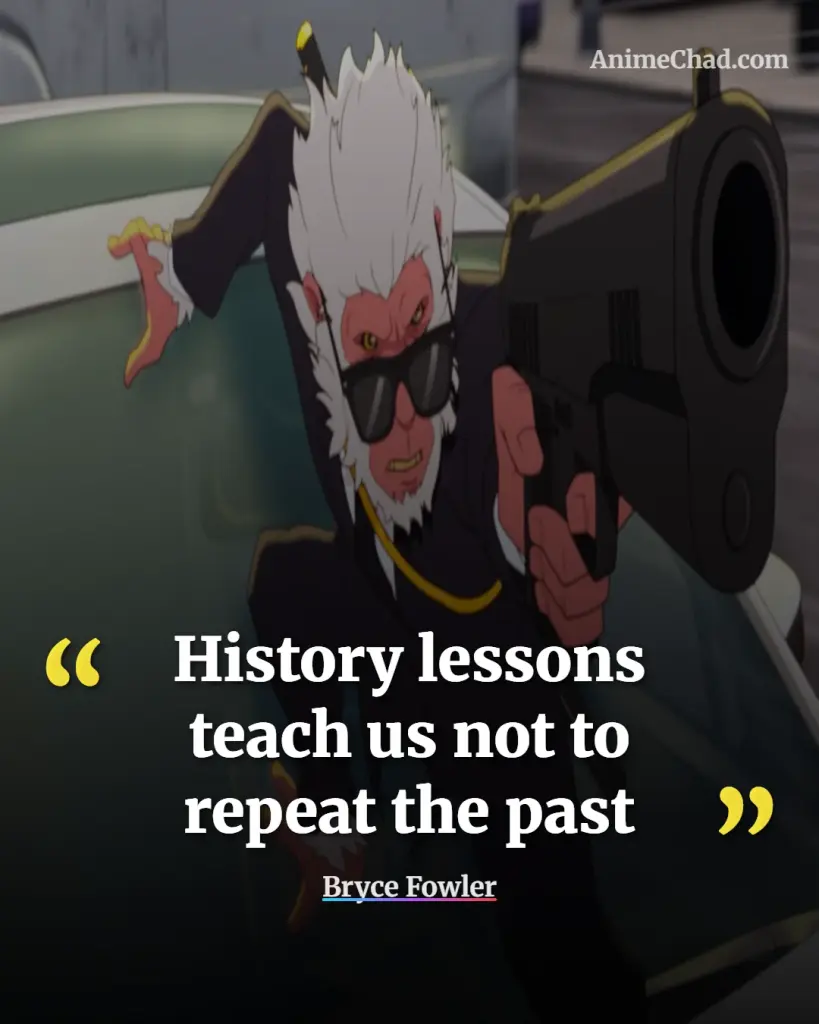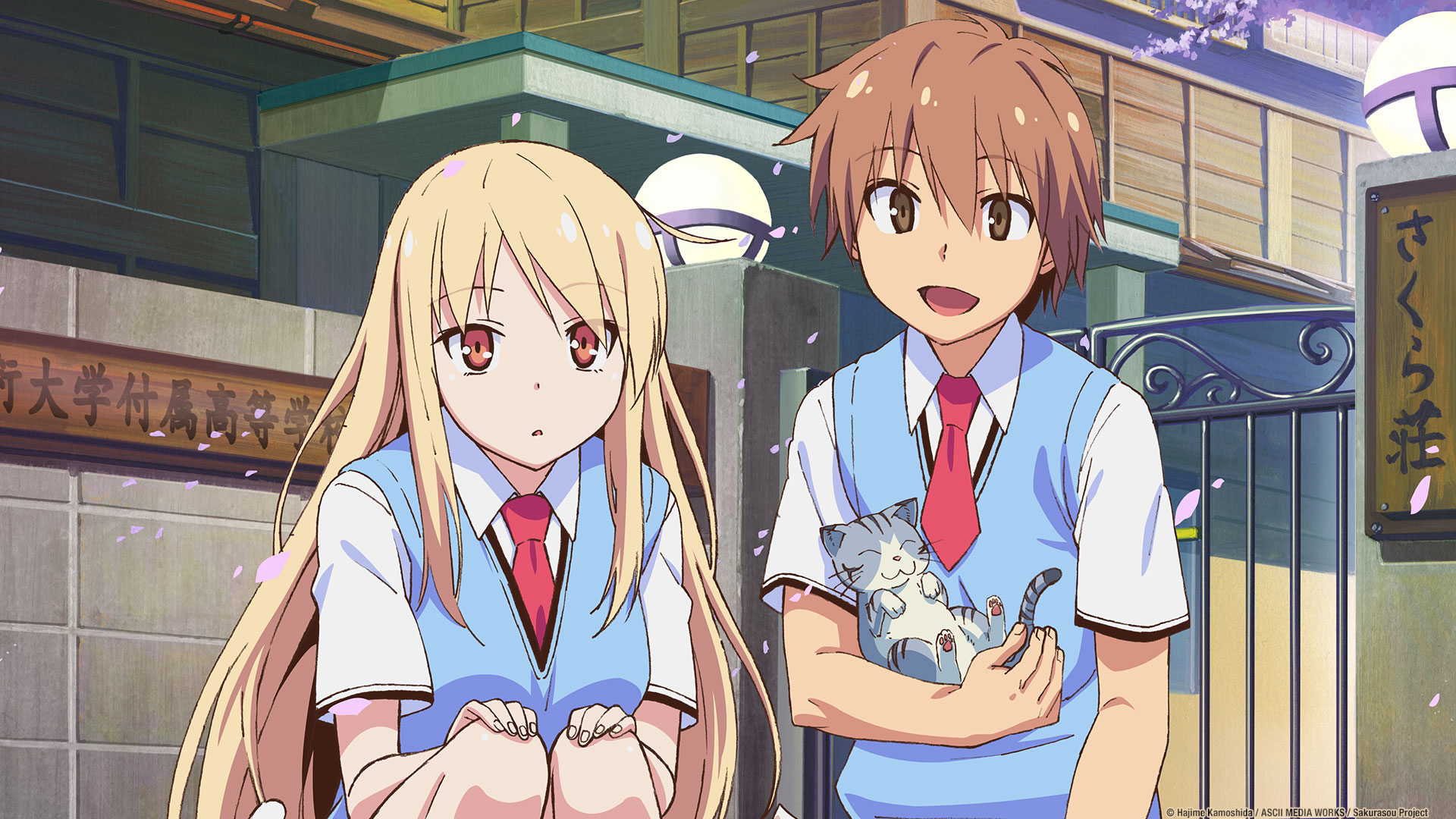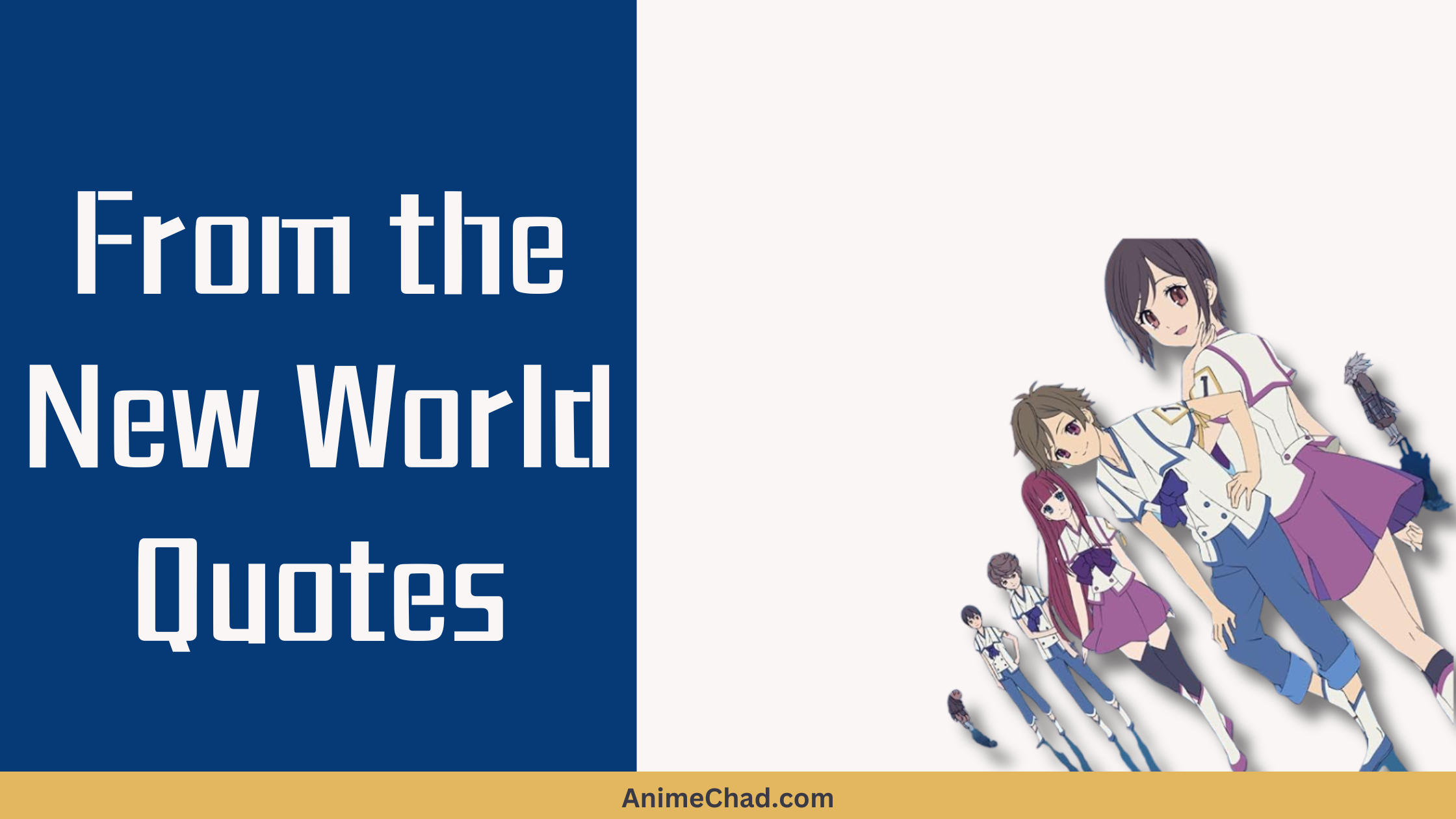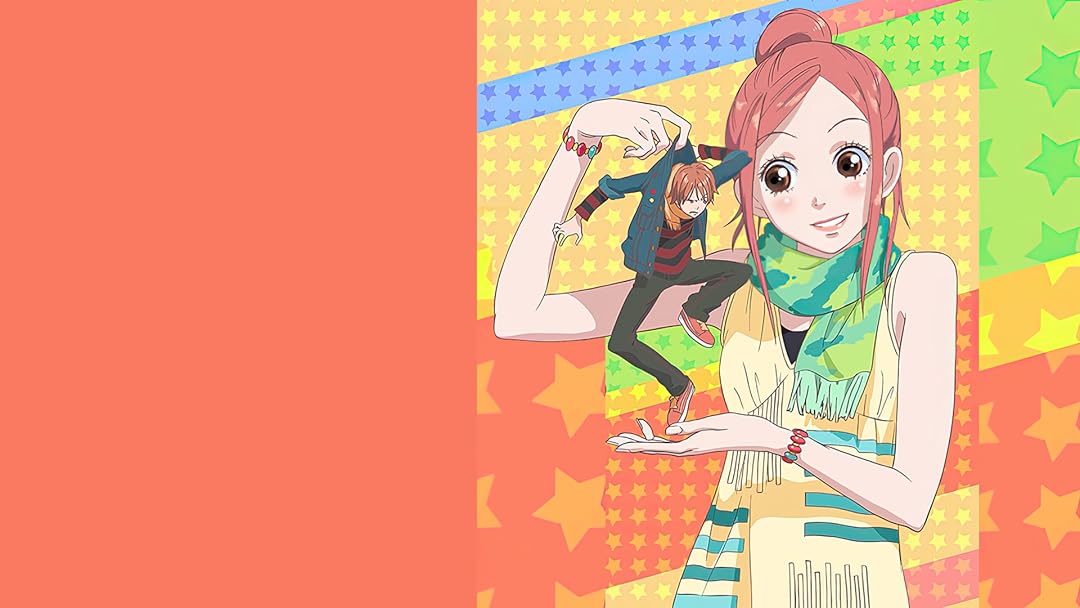Hit-Monkey is an animated Marvel series centered on a vengeful Japanese snow monkey who becomes a skilled assassin, mentored by the ghost of American hitman Bryce Fowler, as he navigates Tokyo’s and New York’s criminal underworld. The show delves into themes of revenge, redemption, the curse of violence, and unlikely bonds amid chaos.
This curated collection of the best 25 quotes captures pivotal moments of emotional depth, character growth, and thematic resonance, blending intense battles with reflective interludes across both seasons.
He who picks up a gun in anger… is cursed to never again put it down
[Episode Details]: (Season 1 Episode 7: Sayonara Monkey)
[Speaker]: Hit-Monkey’s Mentor
[Context]: Mentor’s warning underscores the inescapable cycle of violence, marking Monkey’s tragic shift from innocence to vengeance, amplifying themes of cursed fate.
You-you’re a monkey. With, uh, WEIRD FEET HANDS that NO ONE BOTHERED TO CUFF
[Episode Details]: (Season 1 Episode 1: Pilot)
[Speaker]: Bryce Fowler
[Context]: Bryce’s humorous shock at Monkey’s escape highlights their budding odd-couple dynamic, injecting levity into themes of unlikely alliances and redemption.
Well, come on, while we got some time to kill, I’ll take you to my favorite Sushi place. You know, while we’re on a roll. Pun intended
[Episode Details]: (Season 1 Episode 5: Run Monkey Run)
[Speaker]: Bryce Fowler
[Context]: Bryce’s punny banter during a tense pursuit reveals his coping mechanism for guilt, fostering Monkey’s growth in understanding human flaws amid revenge.
Hope that monkey doctor’s got a load of malpractice insurance up that bright red ass of his
[Episode Details]: (Season 1 Episode 1: Pilot)
[Speaker]: Bryce Fowler
[Context]: Bryce’s sarcastic quip post-injury emphasizes survival humor, connecting to themes of resilience and Monkey’s early protective instincts.
Two dudes, two fates
[Episode Details]: (Season 1 Episode 2: Bright Lights, Big City)
[Speaker]: Bryce Fowler
[Context]: Reflecting on shared destinies, this line deepens their bond, highlighting redemption arcs and the emotional weight of parallel paths in violence.
I know what an exciting night
[Episode Details]: (Season 1 Episode 3: Legend of the Drunken Monkey)
[Speaker]: Bryce Fowler
[Context]: Bryce’s ironic excitement in chaos shows his thrill-seeking past, aiding Monkey’s development from naive animal to calculated avenger.
Turn around before I grab that ponytail and shove it up your partner’s ass
[Episode Details]: (Season 1 Episode 4: The Code)
[Speaker]: Detective Ito
[Context]: Ito’s aggressive threat in a standoff reveals his frustration with corruption, tying into broader themes of justice versus vengeance.
I got ten years worth of ammo to use before the world ends. And each bullet’s got your name on it, Monkey. Which, by the way, is a terrible name
[Episode Details]: (Season 2 Episode 9: The Concrete Jungle)
[Speaker]: Double Tap
[Context]: Villain’s taunt during a battle intensifies the apocalyptic tension, underscoring Monkey’s isolation and growth in facing endless threats.
The so-called Hit Monkey may be at the center of it all
[Episode Details]: (Season 1 Episode 6: The Long Goodbye)
[Speaker]: Haruka
[Context]: Haruka’s observation elevates Monkey’s legend, reflecting his transformation and the emotional impact of becoming a symbol of retribution.
You know, Monkey, once this is all over, my uncle is going to be the new Prime Minister
[Episode Details]: (Season 1 Episode 8: Home Sweet Home)
[Speaker]: Akiko Yokohama
[Context]: Akiko’s hopeful vision contrasts with violence, highlighting themes of ambition and Monkey’s quiet reflection on lost innocence.
It’s rumble time, America style
[Episode Details]: (Season 2 Episode 3: The Rope)
[Speaker]: Bryce Fowler
[Context]: Bryce’s battle cry energizes a fight, showcasing his influence on Monkey’s combat style and themes of cultural clash in redemption.
And the priest said once we kill the top of the chain
[Episode Details]: (Season 2 Episode 7: The Last Supper)
[Speaker]: Bryce Fowler
[Context]: Recalling a moral tale, this fosters Monkey’s doubt about vengeance, adding emotional depth to his internal conflict and growth.
Ooh, see that’s revenge
[Episode Details]: (Season 1 Episode 4: The Code)
[Speaker]: Akiko Yokohama
[Context]: Akiko’s approval while reading comics mirrors Monkey’s path, connecting to themes of justified violence and her own vengeful evolution.
Told ya this was going to get weird
[Episode Details]: (Season 1 Episode 1: Pilot)
[Speaker]: Bryce Fowler
[Context]: Bryce’s meta comment at the ghost reveal breaks tension, emphasizing the series’ absurd humor and Monkey’s adaptation to the supernatural.
A troubled soul, set upon a path of vengeance he does not understand
[Episode Details]: (Season 1 Episode 9: The End: Part One)
[Speaker]: Narrator (Bryce Fowler)
[Context]: Describing Monkey’s journey, this captures emotional turmoil, linking to themes of misunderstood rage and gradual self-awareness.
Push through the pain. Giving up hurts more
[Episode Details]: (Season 2 Episode 4: Never Too Late)
[Speaker]: Bryce Fowler
[Context]: Encouraging Monkey post-battle, it highlights perseverance, reflecting Bryce’s redemption and Monkey’s development in enduring loss.
The strong should aid and protect the weak
[Episode Details]: (Season 1 Episode 7: Sayonara Monkey)
[Speaker]: Haruka
[Context]: In a peaceful moment, this philosophy inspires Monkey’s code, adding emotional weight to themes of protection amid violent cycles.
Nothing’s perfect, the world’s not perfect, but it’s there for us
[Episode Details]: (Season 2 Episode 10: History Lessons)
[Speaker]: Bryce Fowler
[Context]: Reflective closure on flaws, it aids Bryce’s growth toward acceptance, tying into redemption and Monkey’s final emotional release.
If you never listen to anyone, you can’t give proper advice
[Episode Details]: (Season 1 Episode 5: Run Monkey Run)
[Speaker]: Shinji Yokohama
[Context]: Advising during a calm interlude, it underscores listening’s role in bonds, connecting to Monkey’s silent learning and thematic unity.
You’re gonna care what other people think and be someone you’re not your whole life?
[Episode Details]: (Season 2 Episode 5: Akiko)
[Speaker]: Akiko Yokohama
[Context]: Challenging self-doubt, this empowers character authenticity, highlighting emotional growth against societal pressures in revenge arcs.
There are certain things one can’t bear without changing one’s clothes
[Episode Details]: (Season 2 Episode 6: The Estate)
[Speaker]: Bonsai Master
[Context]: Metaphorical wisdom in a quiet scene urges adaptation, reflecting Monkey’s evolution and themes of change through trauma.
You will never be able to love anybody else until you love yourself
[Episode Details]: (Season 1 Episode 10: The End: Part Two)
[Speaker]: Bryce Fowler
[Context]: Bryce’s introspective advice to Monkey emphasizes self-acceptance, deepening redemption themes and emotional healing post-battle.
I repeat: The so-called Hit Monkey may be at the center of it all
[Episode Details]: (Season 2 Episode 8: Mind Mall)
[Speaker]: Haruka
[Context]: In a hallucinatory moment, it amplifies Monkey’s mythic status, exploring identity themes and the weight of his vengeful legacy.
Who says monkeys can’t fight back
[Episode Details]: (Season 1 Episode 3: Legend of the Drunken Monkey)
[Speaker]: Bryce Fowler
[Context]: Rallying during an early skirmish, this boosts Monkey’s confidence, symbolizing empowerment and breaking cycles of victimhood.
History lessons teach us not to repeat the past
[Episode Details]: (Season 2 Episode 10: History Lessons)
[Speaker]: Bryce Fowler
[Context]: Final arc reflection on mistakes, it culminates Bryce’s arc, connecting to broader themes of learning from violence for true redemption.
